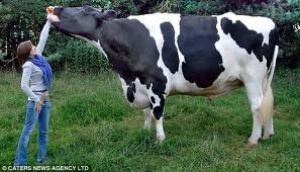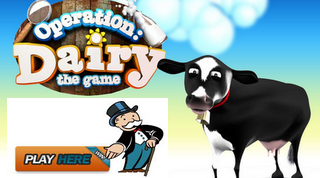Dairy farming

“Given Australian agriculture is an export-reliant industry, Australian farmers are used to competing on uneven playing fields in overseas subsidised markets, but what we are seeing is clear demonstration that farmers and Australian businesses are finding it increasingly difficult to compete,” Mr Laurie said.
“Coles and Woolworths’ decisions to source products for their home brands from overseas suppliers clearly demonstrates this: retailers are seeking cheaper, lower-cost products from other markets for grocery items like packaged food and tinned vegetables.
“This is obviously an issue that must be addressed within the supply chain, with the major supermarkets not delivering on their stated commitment to supporting Australian farmers and sourcing Australian grown produce beyond the fresh food aisles. Yet this is also a wider, more endemic issue that must be addressed at a government level. The government must ensure that all parts of the supply chain are able to remain competitive.
“For farmers, the simple fact is this: the cost of farming continues to rise making us uncompetitive against our overseas counterparts, and over regulation is a key driver in this. The solution is not simple. It’s not a case of farmers simply becoming more efficient: Australian farmers, as the Prime Minister herself has acknowledged, are already extremely efficient - we have to be, in order to compete in the global marketplace.
“We know that we need to grow more food and fibre with fewer resources, and we know that to do so, we need to continually increase our innovation, research and development. Yet it is the regulatory costs on top of our normal farm business costs, on top of the high Australian dollar, and on top of fluctuating commodity prices that make it extremely difficult for our Australian farmers to compete,” Mr Laurie said.
Mr Laurie’s comments come following the statement made by Gina Rinehart this week that Australian export businesses are becoming uncompetitive on the global market.
“If governments are serious about ensuring a strong future for Australia’s agricultural sector, which contributes some $32.5 billion in export earnings to the Australian economy each year, then they must recognise that the regulatory burden is adding to our already tough environment,” Mr Laurie said.
“We’re not asking for government subsidies; what we’re seeking is government policies that facilitate a globally competitive business environment and enable growth in our sector.
“We have long said that what we need is a long-term, strategic approach from government, informed by the sector’s Blueprint for Australian Agriculture and the Federal Government’s National Food Plan, to ensure that we can be competitive, at home and abroad,” Mr Laurie said.





















